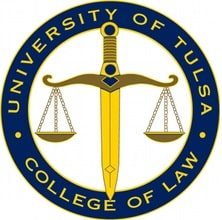
03 Oct Free Content for Your Blog is not Free
“Can I Write an Article for You for Free?”
This email may find its way into your inbox from a variety of sources. It sounds too good to be true; that’s because it is. This phenomenon is known as clickbait.
It’s not hard to believe that scam artists have worked their way into social media and article writing in this digital world in which we live. Scam artists are becoming increasingly crafty as people get smarter and more informed, catching on to their schemes and causing them to change tactics by the day.
Clickbait articles are a new tactic employed by scam artists trying to make a quick buck on the internet. Here is an entirely clickbait-free article exposing these articles for what they truly are: scams.
What is Clickbait?
Webster’s dictionary defines clickbait as, “something (such as a headline) designed to make readers want to click on a hyperlink especially when the link leads to content of dubious value or interest.”
These articles seem relatively innocent on the surface, but with a bit more examination, they have a more devious underlying intent.
Clickbait article titles follow similar formulas, such as:
- 10 Things You Didn’t Know About Something (#6 Will Surprise You)
- This Weird Trick Will Change the Way You…
- …You Won’t Believe What Happens Next…
- Find Out How This Mom Stopped… (Doctors Hate Her)
Taking Advantage of Your Audience
These pseudo-free posts are crafted in such a way as to entice clicks to expose the reader to affiliate links and advertisements for products and services associated with the ghost-writer. These articles are just vague enough to seem like they were written for everyone but just specific enough to appeal to individuals, feeling somewhat tailored to their specific life and situation.
They are taking advantage of your audience to drive sales and obtain ad revenue from clickthroughs on their embedded links.
“Extra, Extra, Read All About It”
This form of media scamming is not by any means a new thing. The last part of the 19th century saw newspaper salesmen on the corner of Main Street selling the news with attention-grabbing headlines designed to elicit emotional, on-the-spot impulse buys. This was the first use of clickbait, though, at the time, it was not called that.
Some newspapers even featured quizzes on the front page that could judge your personality and predict your future.
The clickbait phenomenon is not only “old news,” its formula is completely ripped off of every form of media that precedes it.
The Voice of a Stranger
Publishing an article like this is liable to garnish yours and your business’ reputation in the eyes of some. Articles such as these not only feel untrustworthy but can expose your readers to content that does not reflect your personal views and your company’s brand and values.
Your community relies on you to inform them with trustworthy content and information to understand your business and market trends associated with your profession. Your audience needs consistency to maintain trust and seeing an article of this nature will tend to waiver said trust.
In our ever-increasing technological age, it is more important than ever to stay vigilant of the tactics employed by scam artists. On the surface, it may seem harmless and like a nice gesture on the part of the writer, but underneath lies deceit from those who feel they can take advantage of others.
We hope you have been enlightened to what’s going on in the digital world these days and will take this information to your clientele to spread the word.







